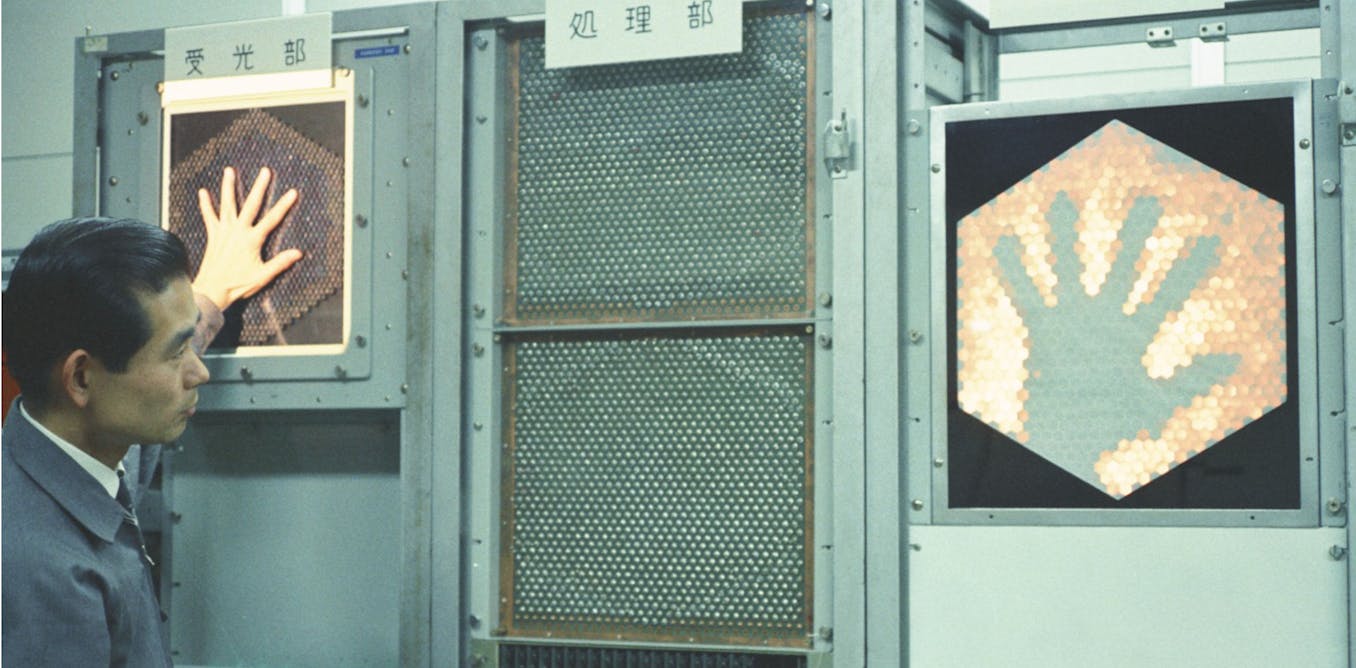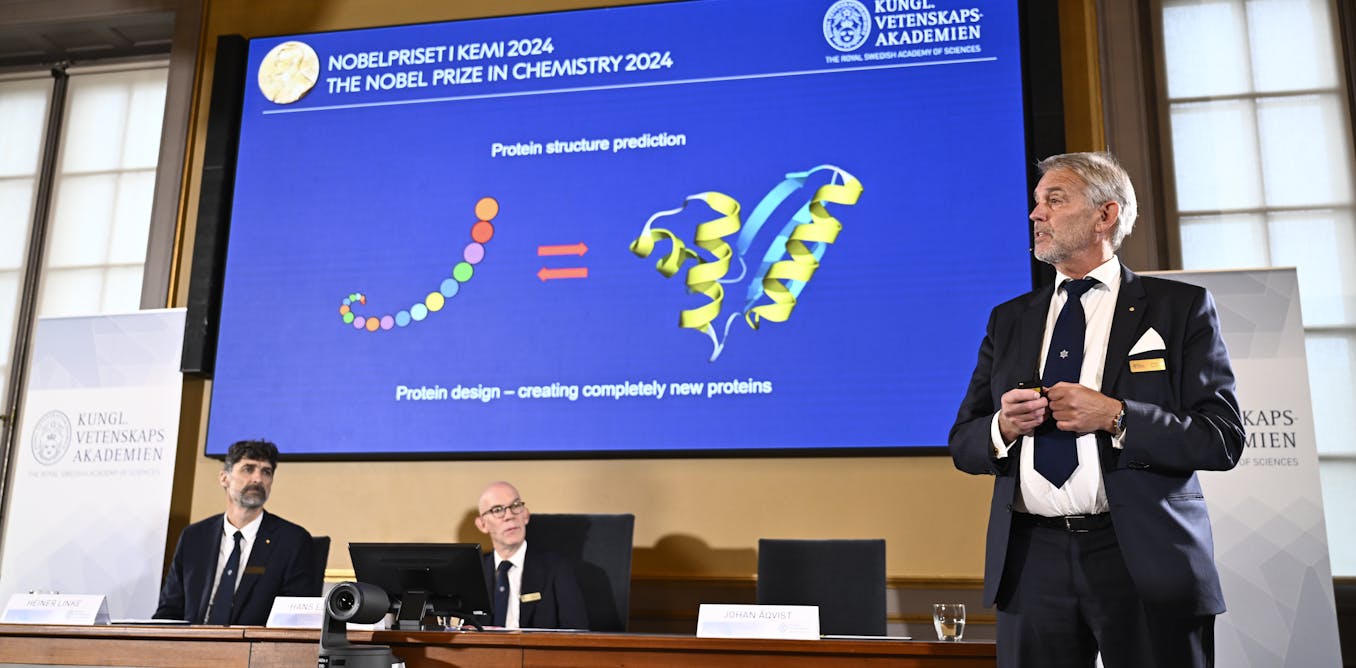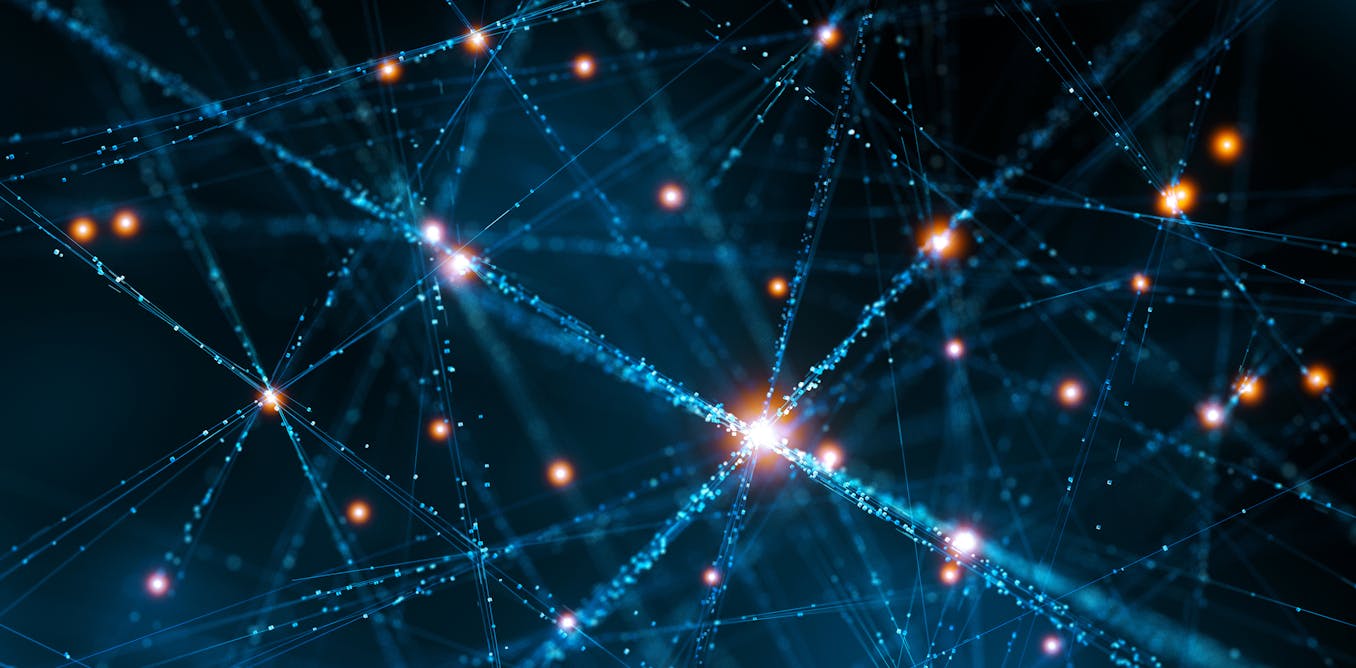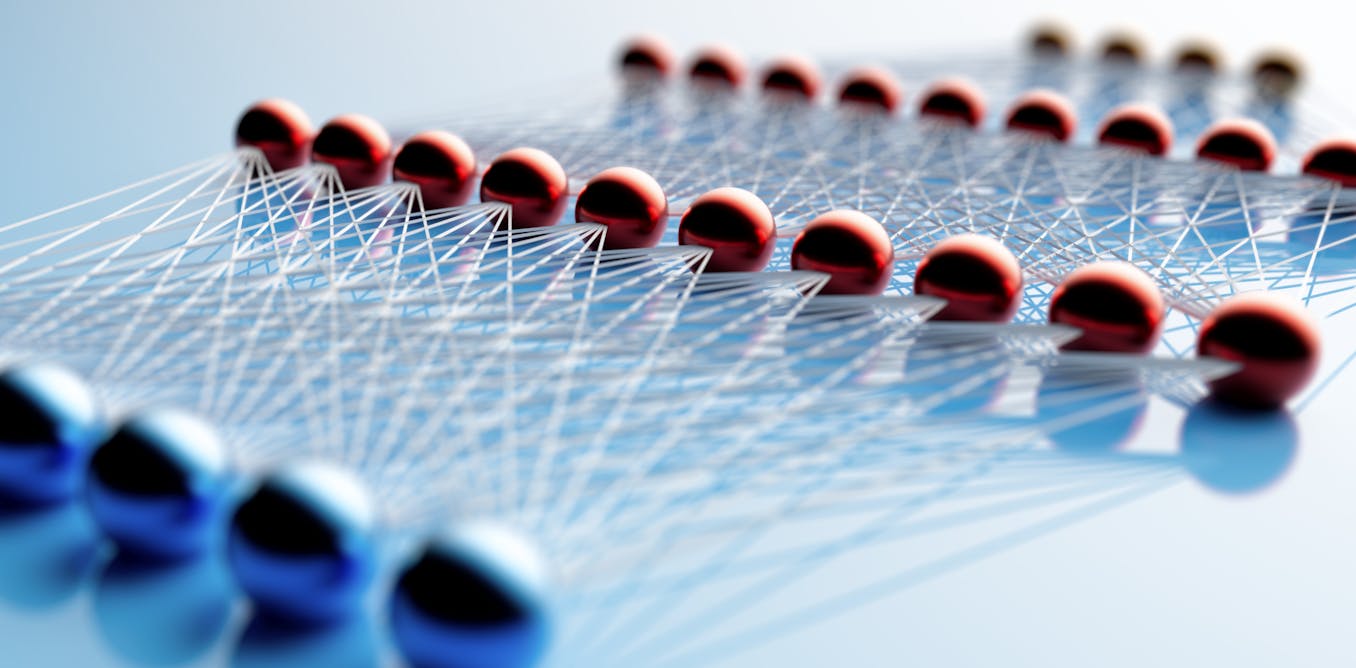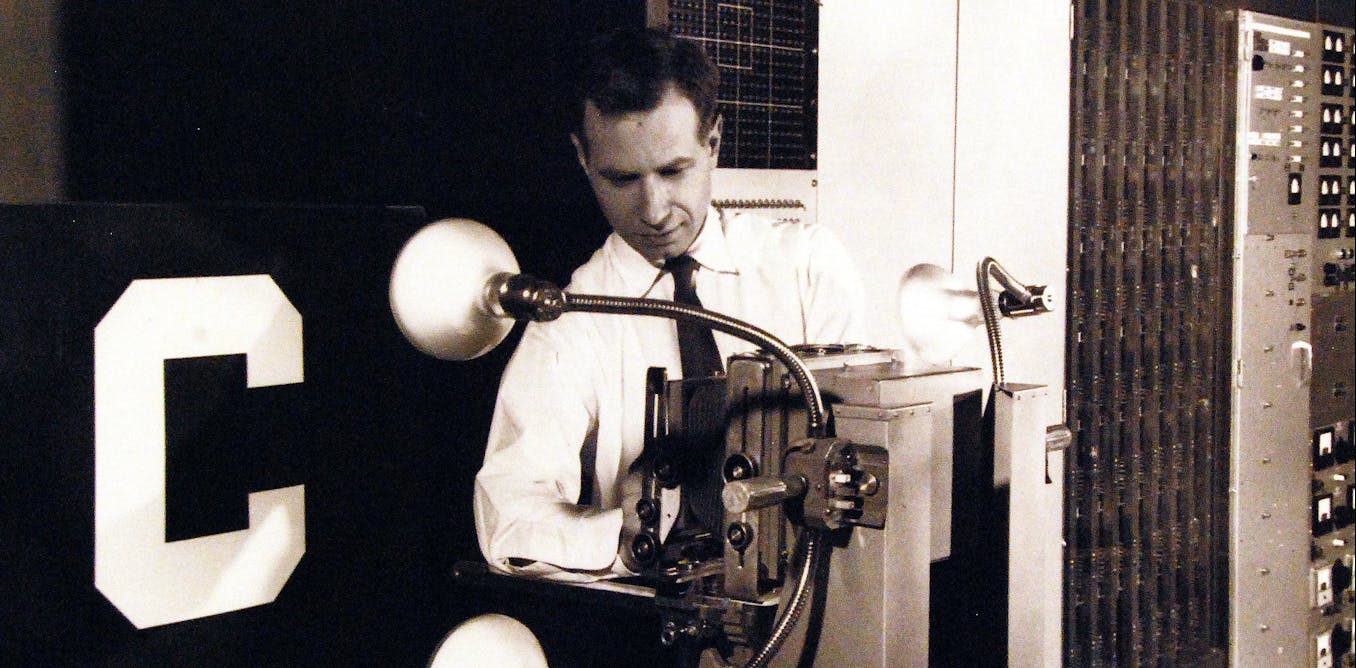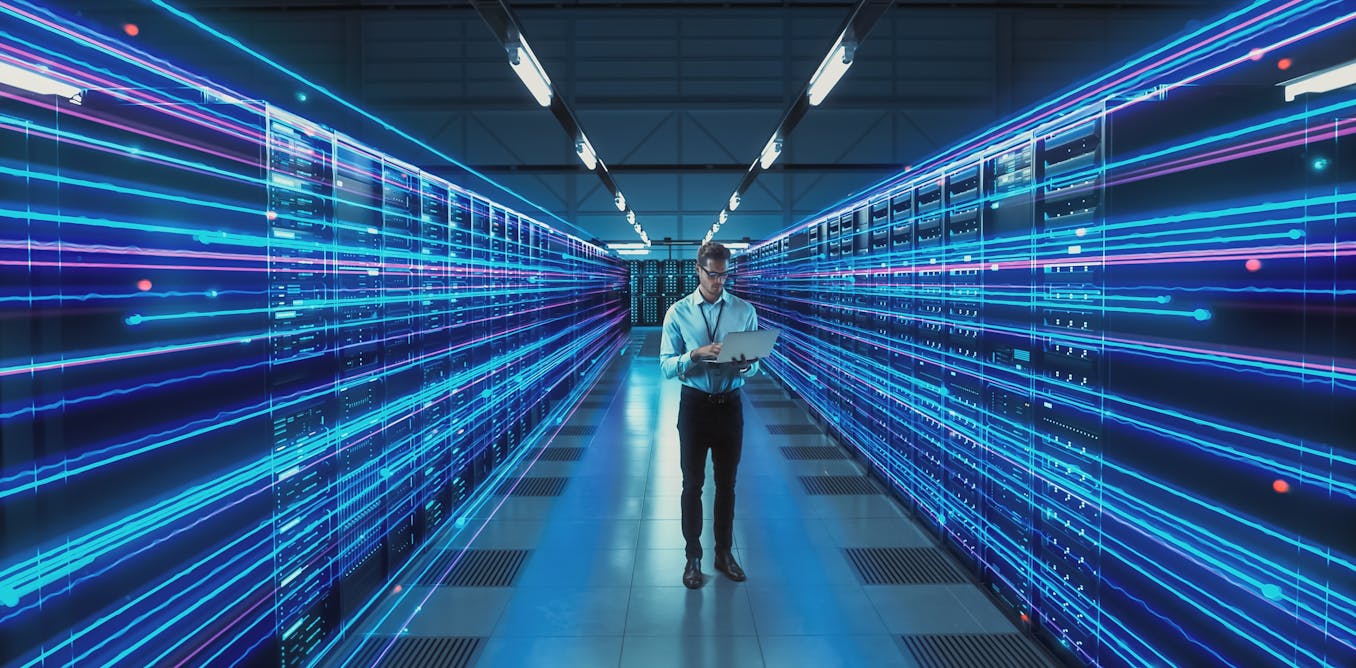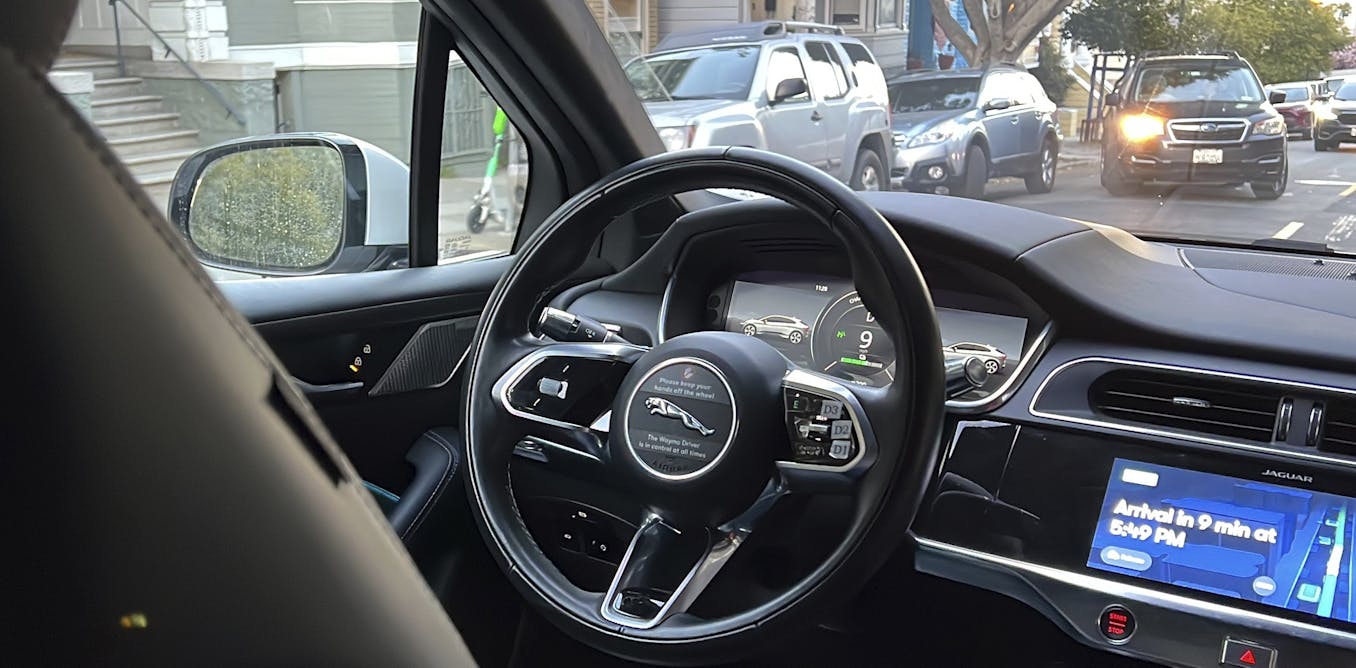AI was central to two of 2024’s Nobel prize categories. It’s a sign of things to come
AI will feature in future Nobel prizes as scientists exploit the power of this technology for research.
Oct. 10, 2024 • ~5 min
How a subfield of physics led to breakthroughs in AI – and from there to this year’s Nobel Prize
Two researchers whose work has led to the AI revolution won the 2024 Nobel Prize in physics. A materials physicist explains statistical mechanics, the physics field behind their discoveries.
Oct. 9, 2024 • ~8 min
Nobel Prize in physics spotlights key breakthroughs in AI revolution − making machines that learn
The Nobel Prize shows that the field of artificial neural networks – and the deep learning AI revolution the technology unleashed – owe as much to physics as biology and computer science.
Oct. 8, 2024 • ~8 min
We’ve been here before: AI promised humanlike machines – in 1958
Enthusiasm for the capabilities of artificial intelligence – and claims for the approach of humanlike prowess –has followed a boom-and-bust cycle since the middle of the 20th century.
Feb. 29, 2024 • ~8 min
Why humans can't trust AI: You don't know how it works, what it's going to do or whether it'll serve your interests
People can trust each other because they understand how the human mind works, can predict people’s behavior, and assume that most people have a moral sense. None of these things are true of AI.
Sept. 13, 2023 • ~8 min
Biting flies are attracted to blue traps – we used AI to work out why
New research on what attracts blood-feasting flies to blue objects could help minimise the impacts of those insects on people and animals.
July 4, 2023 • ~6 min
/
2



